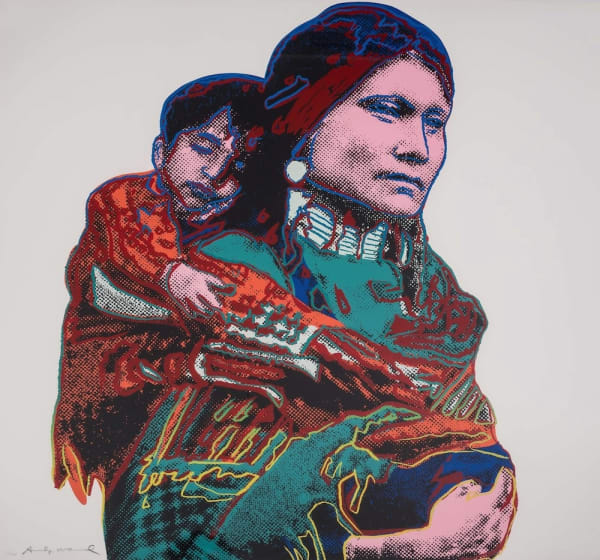-
The Golden Age of Hollywood
C. 1925 - 1960
Beginning in the 1920's, Hollywood experienced what is considered by many scholars to be it's Golden Age. Defined as a period of great achievements and advancements, the era would pave the way for American culture to gestate and permeate the Globe. Set to this backdrop, Warhol was drawn to the celebrity, allure and imagery that would influence all aspects of his art and life.
-
-
Curtains Up
The Most Recognisable Image Of A Movement
Warhol's source material for Marilyn Monroe is a publicity still from her 1953 film, Niagara. At the time of the screenprint's creation, Marilyn Monroe had been dead for five years: yet her image was still omnipresent, both in the media and in the American psyche.
Warhol immortalises one of the most famous faces in modern history, infusing a ubiquitous image with a vivacious spirit. From this point onwards, the pop artist's foremost reputation as a portrait artist was without doubt: according to Arthur C Danto, Warhol:"Did more than any other artist to revitalise the practice".
-

-
-
Escapism In Your Hands
Just One Click
The number of television sets in use in the USA rose from circa 6,000 in 1946 to some 12 million by 1951. No new invention entered American homes faster than black and white television sets; by 1955 half of all U.S. homes had one. With a simple click of a button, viewers could be transported to new worlds, new realms and experience a life beyond their own experiences. Warhol's fasincation with Americana can be directly tied to his childhood experiences where television, magazine and mass-media would have been consumed.
-
Move 'em on, head 'em up, rawhide
Origin Myths
Warhol’s interest in Americana is a lifelong, personal fascination that the artist had held since childhood. Having grown up watching Westerns, the artist would as an adult, become an ardent collector of all things Western including cowboy boots, Native American rugs, tools and photographs. Indeed, many of the artefacts showcased in Cowboys and Indians were encountered by the artist in the Smithsonian National Museum of the American Indian.
-
-

-
Is It A bird? Is It A Plane?
No, It's Superman!
Featuring a series of portraits of figures from the American imagination, ranging from popular children’s cartoon character Mickey Mouse to the personification of the US government in Uncle Sam, the Myths portfolio brings a reimagining of familiar characters that inhabit our global cultural consciousness to the world.
Created in the final decade of the artist’s career, the prints are important as they can be seen as the culmination of Warhol’s most principle theme, that of the United States and its relation to commercialism and consumerism.
Equally important is Wahol's Ads Series, taking mythical motifs and imagery from adverts that are absorbed, respun and reimagined by the artist.
-
-

-
Explore more Andy Warhol prints available at Andipa Editions.
For more information on any of the works featured, contact sales@andipa.com or call +44 (0)20 7589 2371.











